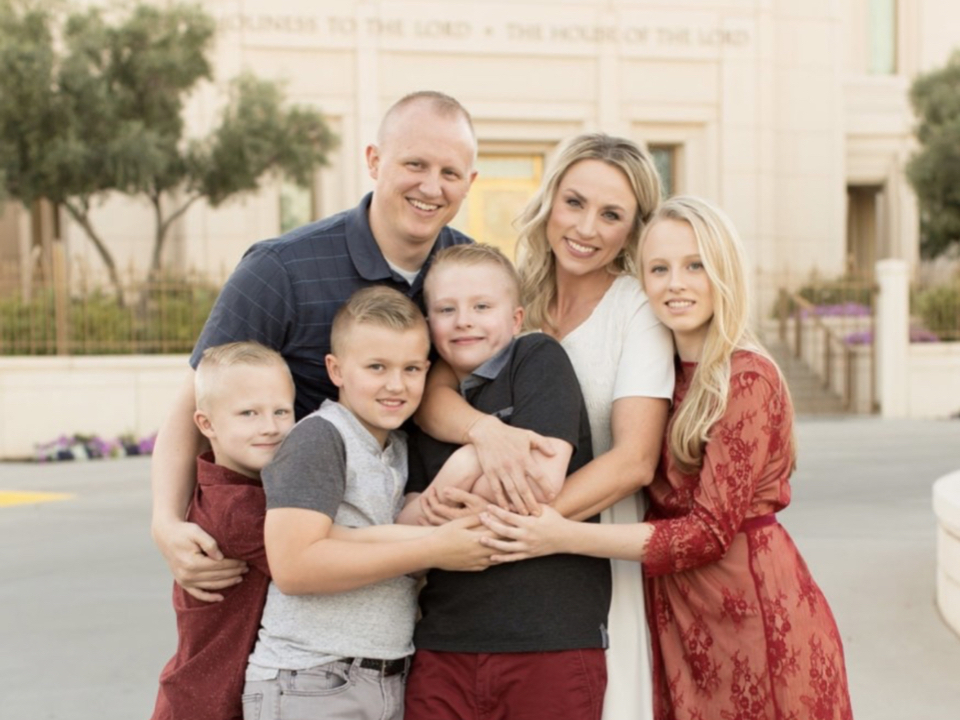
thumbnail_image0.jpg
Rebecca Barlow, ward disability specialist in the Desert Valley Ward, Desert Ridge Stake, in Mesa, Arizona, poses with her family. Barlow has helped solve problems in her ward by creating a sensory room and initiatives to help Church members handle mental health problems. Photo courtesy of Rebecca Barlow. All rights reserved.
As a college student and then as a missionary for The Church of Jesus Christ of Latter-day Saints, Rebecca Barlow saw church as an essential place to strengthen her testimony and learn through the Spirit.
But as a young mother, she saw her church experience change when her second child, Wesley, was diagnosed with autism.
“The meaning of going to church mutated,” Barlow said. “It became nearly impossible to attend. Wesley was agitated, loud, aggressive and overstimulated [at church].”
Barlow and her husband started trading off Sundays so one of them could attend church meetings while the other stayed home with Wesley, or they would only stay for sacrament meeting. She said there were lots of “tears and frustration” as they tried to find a solution.
After the family moved to a new ward, “a compassionate bishop heard our pleas for help,” Barlow said. The bishop created a calling for a sister in the ward to act as a one-on-one aid for Wesley. That way, Barlow could finally return to Relief Society. She was overjoyed.
“Over time, church became more than a building; it finally became a safety net, a place of solace and learning, a place where we didn’t need to hide our troubles and struggles but could share them,” Barlow said.
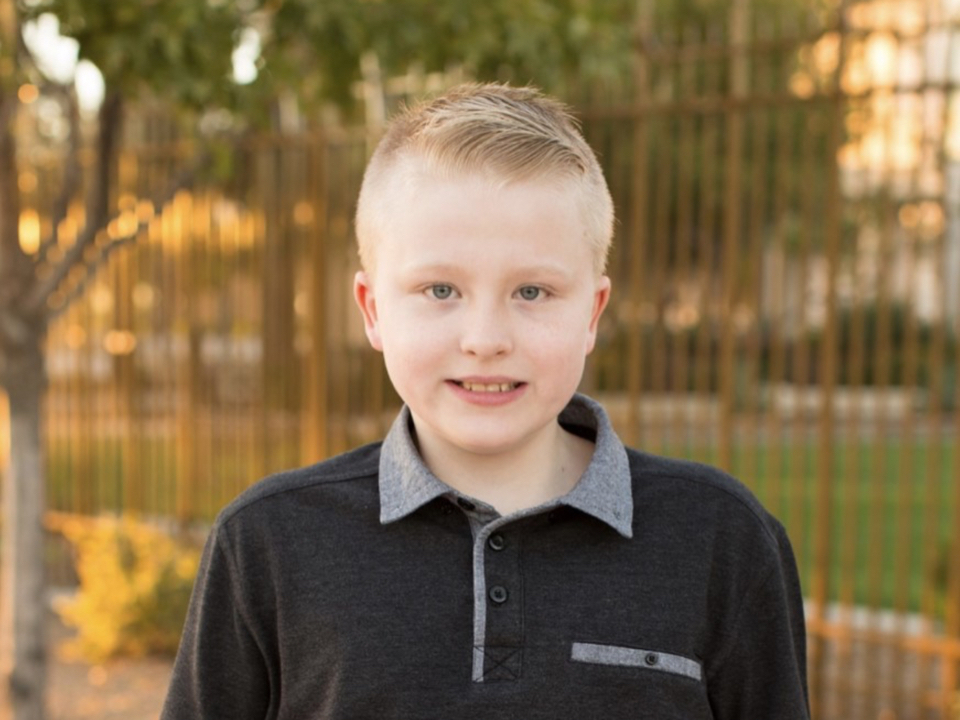
thumbnail_image1.jpg
Wesley Barlow is the son of Rebecca Barlow, who serves as the ward disability specialist in the Desert Valley Ward, Desert Ridge Stake, in Mesa, Arizona. Wesley was having a hard time attending church meetings because of his autism, which helped Rebecca understand how to help other families affected by disabilities have a better church experience. Photo courtesy of Rebecca Barlow. All rights reserved.
She could relax knowing that not only did her ward family love her, they also loved her son and loved serving him.
“I have seen Wesley become not just my son but everyone’s son, brother and friend,” she said. “Wherever he goes within the building he is met with love. I have seen his pure testimony bless countless lives.”

DSC_0125.JPG
Rebecca Barlow's son Wesley, at center with his arms folded, is flanked by men in his Young Men's class at church. Photo courtesy of Rebecca Barlow.All rights reserved.
Using Empathy to Serve
Barlow now serves as a ward disability specialist in the Desert Valley Ward, Desert Ridge Stake, in Mesa, Arizona. When she began serving in this calling, Barlow felt empathy for the families in her ward who couldn’t attend meetings for various reasons, as well as the many people who came to meetings but sat alone.
She decided to work hard to build a ward family by having difficult conversations and helping others learn how to address different needs.
Barlow’s ward family currently has three primary children, a young man and a recently returned missionary, all of whom have autism. “How blessed are we!” said Barlow, who saw their needs as an opportunity and got to work right away.
People with sensory needs often find meetinghouses hard places to be, Barlow said, because of the bright lights, busy hallways, congested chapels and loud noises. Working with the ward Primary president and a supportive bishopric, she created a sensory room in the church building. Ward members donated items to help build the room, and one-on-one aids were called and trained to help each child. A special Sunday School lesson was held to discuss disabilities, explain the need for accommodations and introduce the sensory room to the ward.
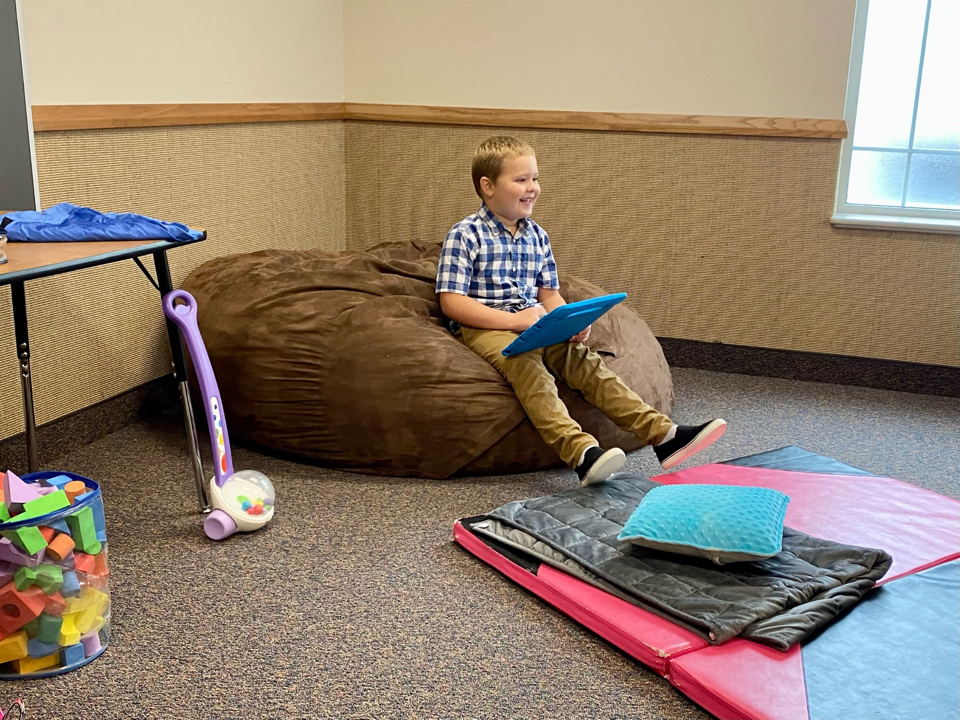
image8.jpeg
A young boy enjoys the sensory room in the church building for the Desert Valley Ward, Desert Ridge Stake, in Mesa, Arizona. Rebecca Barlow is the ward disability specialist for the Desert Valley Ward and has implemented solutions like a sensory room and mental health resources to help people in her ward. Photo courtesy of Rebecca Barlow.All rights reserved.
“Miracles began to happen,” Barlow said. “Faithful member families that were truly not able to attend were finally able to come and be nurtured within our walls.”
The room is available not only for people with autism but also for anyone with a mental illness, sensory issue or a need for a calm space, Barlow explained. The sacrament is blessed and passed within the sensory room for anyone who needs to take it there. Parents of children with special needs can now benefit from attending elders quorum and Relief Society meetings.
“A new sense of purpose and unity has come over our entire ward family,” Barlow said.
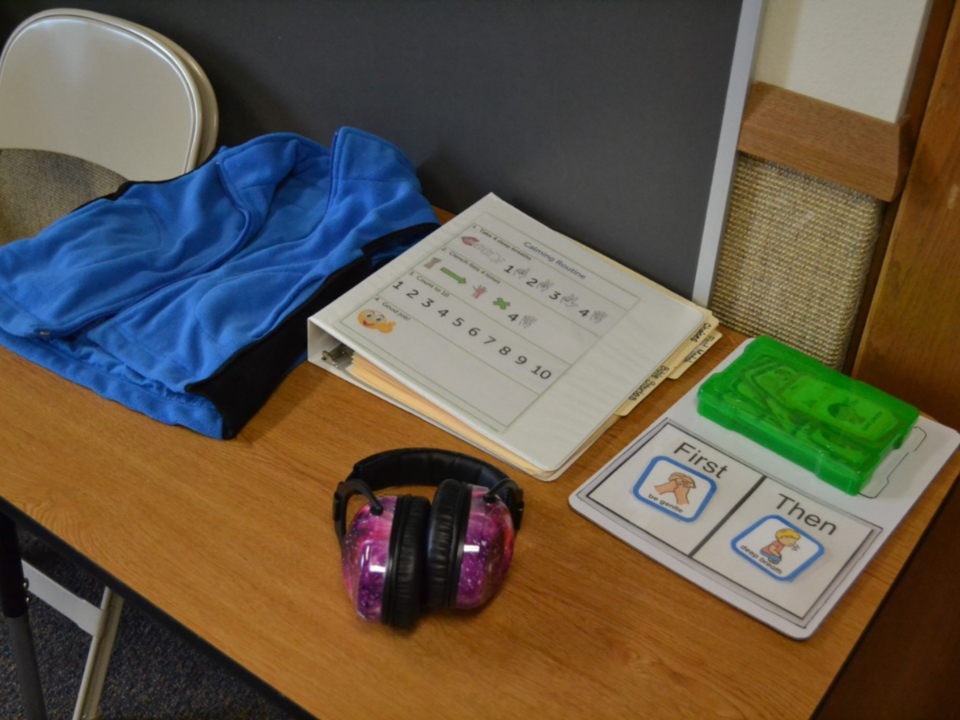
thumbnail_DSC_0100.jpg
Workbooks, headphones and other resources are available in the sensory room Rebecca Barlow designed for her ward. Barlow is the ward disability specialist for the Desert Valley Ward and has implemented solutions like a sensory room and mental health resources to help people in her ward. Photo courtesy of Rebecca Barlow.All rights reserved.
‘We Can Talk about Hard Things’
Another way Barlow has helped meet specific needs in her ward is by creating initiatives to help youth with mental health issues. She sent out an anonymous survey to young men and women in her ward, asking about their experiences. She then hosted an adult-only fireside to discuss teen mental health, including topics like anxiety, depression, suicide prevention, therapy and self-care.
Barlow also created training exercises where parents and leaders could practice discussing difficult topics with their youth. She invited them to all to attend a stake emotional resiliency self-reliance course.
“We have begun the process of building our ward family through seeking to dispel misunderstanding — by tossing out the notion that there are subjects we can’t talk about,” Barlow said. “In our ward family we can talk about hard things, and we do.”
Her hope is that she can help create a community of people who can worship together, bring their problems to the table and feel the community’s love without anyone feeling left out or forgotten.
“Attending church has an altogether different meaning to me now. It has become a place of miracles, a place of healing, of gathering in, of relieving suffering, and lifting up the heads that hang down,” Barlow said. “Each of us is part of our Heavenly Father’s story and necessary to its completion.”
Barlow quoted Sister Sharon Eubank of the Relief Society General Presidency, who taught, “We may not yet be where we want to be, and we are not now where we will be. I believe the change we seek in ourselves and in the groups we belong to will come … by actively trying every day to understand one another. Why? Because we are building Zion — a people of ‘one heart and one mind’” (“By Union of Feeling We Obtain Power with God,” October 2020 general conference).
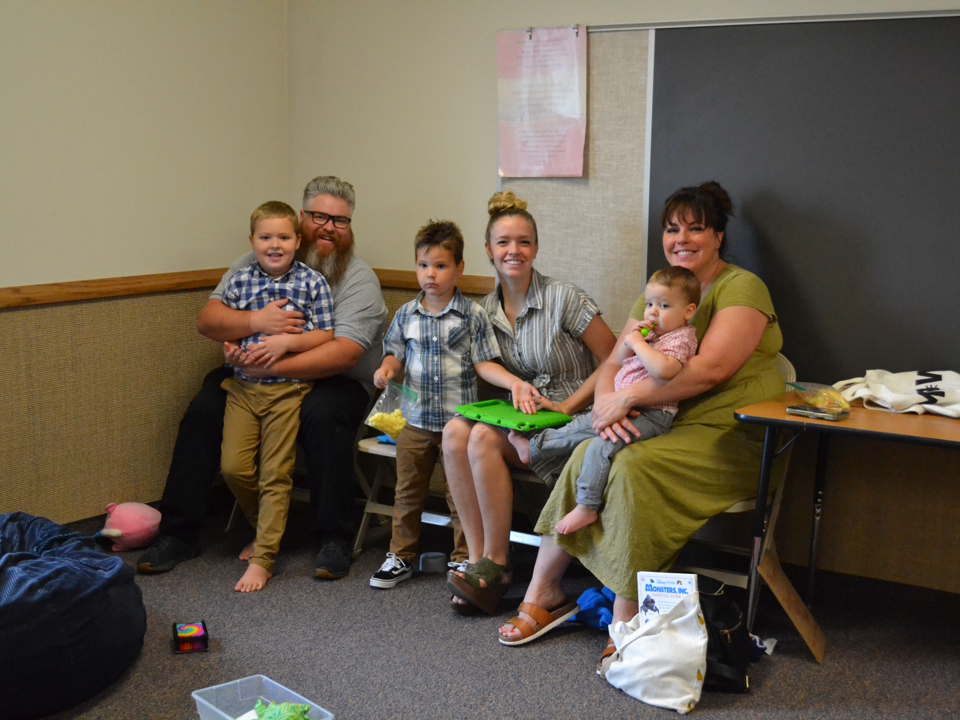
DSC_0107.JPG
A family and aides use the sensory room in the church building for the Desert Valley Ward, Desert Ridge Stake, in Mesa, Arizona. Rebecca Barlow is the ward disability specialist for the Desert Valley Ward and has implemented solutions like a sensory room and mental health resources to help people in her ward. Photo courtesy of Rebecca Barlow.2022 by Intellectual Reserve, Inc. All rights reserved.
Barlow hopes all leaders in the Church will truly listen to those in their stewardship to help address their individual needs.
“Many who struggle with physical or mental disabilities feel misunderstood and unseen,” she said. “Leaders, listen to your parishioners. Listen to those who have needs you don’t understand. And begin communicating about accommodation.”
